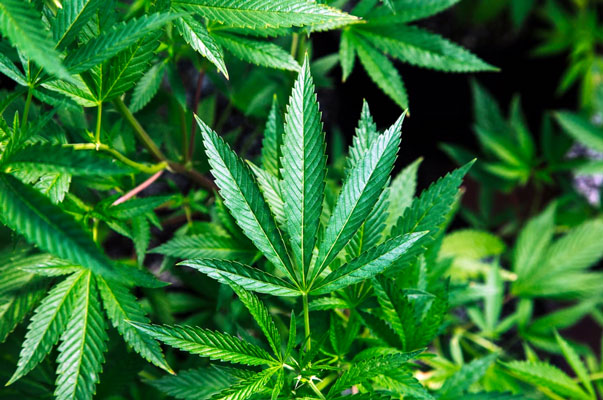Sometimes growers wish to bypass the seedling phase and directly cultivate healthy cannabis plants.
Using marijuana clones provides a fast track to establishing a successful garden. These clones of mature plants will reduce germination times by weeks and ensure reliable outcomes. You should think about several important factors before deciding to buy marijuana clones.
Success in any grow operation depends on choosing proper clones, regardless of whether you operate commercially or at home.
What You’ll Discover:
- What Are Marijuana Clones?
- Genetics: The Foundation of Quality Clones
- Health Indicators to Look For
- Rooting System Evaluation
- Source Reliability Matters
- Cost vs. Quality Considerations
- Legal Considerations
What Are Marijuana Clones?
A marijuana clone represents an exact genetic replication of its “mother plant” which growers produce through branch cutting and allowing roots to form.
The cuttings preserve the same traits as the original plant since:
- Clones remain female unless they originate from a male plant.
- They’ll produce identical cannabinoid and terpene profiles
- They grow with predictable patterns and yields
Commercial operations depend on clones because they provide consistent results. Market projections indicate that the global cannabis cultivation market will expand from $179.32 billion in 2024 to $208.64 billion in 2025, with a CAGR of 16.3%, which demonstrates increasing investment in propagation methods like cloning.
If you’re looking to start your own grow operation with clones, you’ll want to click here to explore quality options from reputable suppliers.
Genetics: The Foundation of Quality Clones
Genetics stands as the foremost factor to evaluate when buying marijuana clones.
Why? Perfect growing conditions cannot make up for inferior genetic material when growing plants. The mother plant determines:
- Potency potential
- Yield capacity
- Resistance to pests and diseases
- Flavor and aroma profiles
The US cannabis market will hit nearly $45 billion by 2025, which will escalate the demand for top-tier genetics. Growers in this competitive marketplace must use exceptional starting material to develop standout products.
This guide explains how to evaluate clone genetics for successful cultivation.
- When assessing stable lineage ensure you know the mother plant’s background as well as the number of generations it has been cloned.
- The seller should have the capability to provide confirmation of the exact strain identity.
- Choose genetics that align with the conditions of your growing environment and your production objectives.
Health Indicators to Look For
The visual features of clones reveal essential details concerning their well-being and potential success. Check them for these signs before you complete your purchase.
Green flags (positive indicators):
- Vibrant, uniform green leaves
- Sturdy stem with slight flexibility
- Consistent leaf structure
- Clean cut at the base
- Healthy white roots (if visible)
Red flags (warning signs):
- Yellowing or browning leaves
- Spots, discoloration, or unusual patterns
- Wilting or drooping
- Visible pests or eggs underneath leaves
- Foul odor from stems or growing medium
Millennials and Gen Z consumers represent 63% of US cannabis sales, while they continue to demand better quality starting materials for their cultivation projects.
Rooting System Evaluation
Clones demonstrate their potential quality and performance through their root system, which acts as a plant’s foundation.
A well-developed root system indicates:
- The clone received adequate care throughout its early development stages.
- It has greater resilience to transplant shock
- The plant will develop more rapidly when placed into your growing medium.
Follow these steps to assess root quality when buying clones.
- Look for white roots: The roots of healthy plants display white or cream colors as opposed to brown or black shades.
- Check root quantity: A healthy clone will demonstrate several roots growing from its stem.
- Assess structure: Healthy roots should exhibit branching growth instead of having a linear development pattern.
When a seller refuses to allow root inspection, you should regard this as a warning sign. The best vendors recognize that root health matters, and they provide details regarding their clones’ root condition.
Source Reliability Matters
The quality and health of your clones depend greatly on where you choose to buy them, which will determine your growing success.
The US legal cannabis sector provides full-time equivalent positions for 440,445 workers while developing a marketplace of clone suppliers who exhibit diverse expertise levels and quality control standards.
Here’s how to evaluate potential clone sources:
- Choose nurseries that have demonstrated consistent success in delivering quality clones.
- Inquire if their mother plants undergo testing procedures for pest and disease detection.
- Cleanliness and organization of grow facilities lead to healthier cloned plants.
- Employees should demonstrate the ability to provide comprehensive information regarding different strains.
- Evaluate potential sources by reading online reviews and seeking advice from experienced growers
A trustworthy seller will back their products with a guarantee for their clones.
Cost vs. Quality Considerations
The saying “you get what you pay for” proves true when selecting marijuana clones.
Analysts project medical and recreational marijuana sales will reach $35.3 billion in 2025 which will create competition for high-quality starting materials. Multiple aspects of clone pricing are influenced by the current state of the market.
Price factors to consider:
- Strains that are exclusive or newly released often fetch higher prices because of their genetic uniqueness.
- Strain popularity: High-demand varieties typically cost more
- Established clones that have already rooted fetch higher prices than newly cut clones.
- Clones that undergo testing and show no signs of pests or diseases command higher prices.
Despite having financial limitations many growers face a $10-30 price gap between premium and budget clones which turns into a worthwhile investment for better quality harvests and yields.
Legal Considerations
Understanding local legal requirements is a necessary step before buying marijuana clones.
Despite its economic impact of $123.6 billion, driving regulatory advancements in the cannabis sector, regional legal variations persist.
Legal checkpoints:
- Check your state and local regulations to determine if marijuana cultivation is permitted in your area
- Learn the maximum number of plants you can legally cultivate.
- Find out which permits or licenses you require for operation.
- Certain regions place restrictions on the locations where clones can be purchased legally
- Understand transportation rules for moving clones legally
Local counties or municipalities can enforce their own cannabis restrictions despite state-level legalization. Stay informed by looking up the most up-to-date rules that apply to your exact location.
The future growth of the U.S. cannabis market to $76.39 billion by 2030 depends on operators consistently adhering to legal standards.
Tying It All Together
Investing in marijuana clones represents a critical financial commitment when starting your cultivation process. Making the correct decisions will speed up your success, but bad choices can lead to hard-to-address challenges.
To recap the essential considerations:
- Genetics form the foundation of potential quality
- Visual health indicators reveal immediate condition
- Root development predicts establishment success
- Source reliability affects overall clone quality
- Cost considerations should balance budget and quality
- Following legal requirements keeps your business operations completely legitimate.
Evaluating these factors before purchasing maximizes your likelihood of acquiring healthy and productive plants that produce desired results.
Good quality clones provide a substantial advantage toward successful harvesting whether you grow for personal consumption or commercial sale. The rapidly expanding cannabis market encourages advances in cloning techniques and genetic development which presents an exciting opportunity to learn about products from trusted suppliers.











